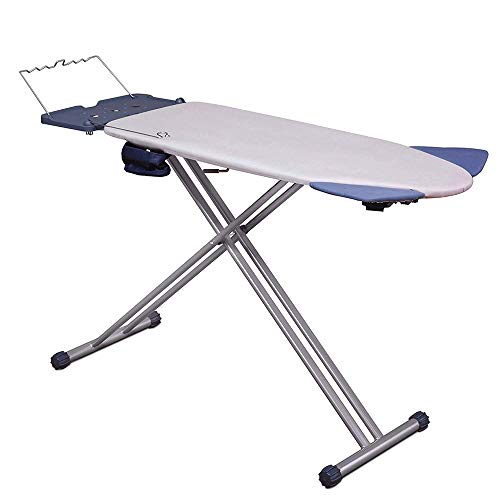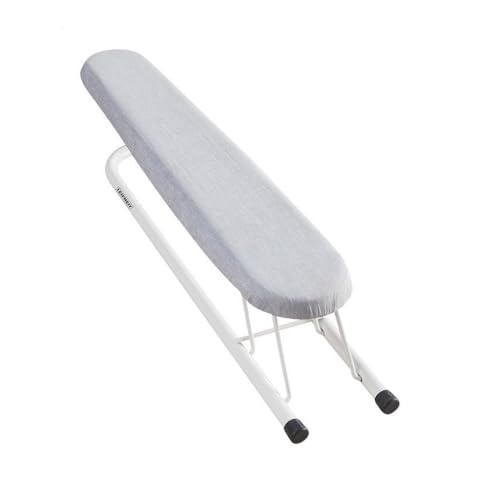Understanding the Basics: What to Look for in an Ironing Board
Key Features to Consider
When we’re choosing an ironing board, there are a few essential features we should keep in mind. First, consider the height of the board. It should be adjustable to ensure we can iron comfortably without straining our backs. Next, look at the width and length of the ironing surface; a wider board can hold larger garments, while a narrower board is easier to store. Also, the stability of the legs is crucial; a sturdy base prevents wobbling during use, which can be particularly important when ironing delicate fabrics.
Portability and Storage
Many of us want an ironing board that doesn’t take up too much space, especially if we live in smaller homes or apartments. Look for boards that can fold easily and are lightweight, making them simple to tuck away when not in use. A board with a locking mechanism when folded can prevent accidental openings during storage.
Choosing the Right Size and Shape for Your Space
Maximising Limited Space
If space is a concern, we should consider a compact, small ironing board model, which can be perfect for apartments or rooms with limited space. Wall-mounted boards are also an option, freeing up floor space while being easily accessible. For those with more room, a full-sized ironing board provides a larger surface which can make ironing quicker and more efficient.
Laying Boards for Various Needs
While traditional rectangular shapes are common, we can also find ironing boards in unique shapes. For example, a pointed end can be ideal for reaching into the corners of shirts or for tackling difficult-to-iron areas, while a wider surface can be advantageous for ironing larger items like bed linens.
Exploring Different Materials: Which Board Best Suits Your Needs?
Cover Material Influence
The material of the board cover plays a significant role in the efficiency and ease of ironing. We should look for covers made from 100% cotton or those that have a heat-reflective layer to maximise steam and heat distribution. A thicker padded surface can also help in ironing out tough wrinkles efficiently as it cushions the fabric.
Frame Material Considerations
The frame itself should ideally be made from sturdy materials, such as steel or aluminium, for durability. If we’re using the ironing board regularly, it’s advisable to pick one with a strong frame that can endure constant use, ensuring it remains stable during our ironing sessions.
Convenient Features: Essential Accessories and Add-Ons
Integrated Technologies
Some modern boards come equipped with helpful features like an integrated iron rest, which is ideal for safely placing hot irons when not in use. An iron rest can prevent burns and damage to surfaces, providing additional convenience while we undertake our ironing tasks.
Adding Versatility
Additional accessories can further enhance our ironing experience. For example, some boards feature built-in storage for starch, spray bottles, or even an electrical outlet for steam irons. If we often iron delicate fabrics, a protective cover for the board can also be a beneficial addition to safeguard against burns.
Maintenance Tips: Keeping Your Ironing Board in Top Condition
Regular Cleaning
Maintaining our ironing board is essential for ensuring it lasts a long time and operates efficiently. It’s a good practice to regularly wipe down the board surface to remove any residue from fabric and starch, while also checking beneath the cover for dust and lint. Keeping the area around our ironing board tidy will also make our ironing experience smoother.
Storage Best Practices
When storing our ironing board, we should ensure it’s folded and secured properly to take up minimal space and avoid damage. Covering the board with a protective cloth can help prevent dust accumulation and prolong the life of the fabric cover.





















